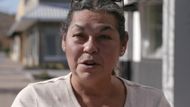In 1991, the Yogurt Shop murders shook Austin and continue to haunt true crime buffs to this day. The savage murder of four adolescent girls in a quaint ice cream shop became a story shadowed with erroneous convictions, contested confessions, and unresolved mysteries. Should this chilling narrative have held you enthralled, a whole host of unbearably disturbing docuseries is clamoring for your attention.
2025's The Yougurt Shop Murders delves into cold cases revived by new evidence, overturned wrongful incarcerations, and personal crusades resulting in law reforms. They provide recent developments and compelling narratives that will haunt you even after you've watched them.
Just like in The Yogurt Shop Murders, the shows will haunt your thoughts at night, questioning where the truth truly lies and wondering how far you would go in unearthing it.
7 true crime docuseries that will keep you up at night if The Yogurt Shop Murders hooked you
1) Making a Murderer

Netflix's Making a Murderer documents Steven Avery's struggle against wrongful conviction. It also resonates with the haunting questions of The Yogurt Shop Murders. Public pressure and accusations of rushing to judgment were both leveled against investigators in both instances. Avery's account illustrates how tunnel vision can override critical evidence, as also did the Austin police in the 1991 yogurt shop case, when they were accused of mishandling forensic leads.
The show captures the emotional burden on families and the justice system when justice is compromised by doubt. Having watched it, you can't help but wonder how many similar cases exist with this unsettling trend of uncertainty and unfinished truth.
2) The Jinx: The Life and Deaths of Robert Durst

The Jinx: The Life and Deaths of Robert Durst recounts Robert Durst's haunting life of suspicion, disappearance, and homicide charges. Its acerbic reporting tone echoes the renewed interest The Yogurt Shop Murders saw decades later after the crime. In both, the past will not remain buried; new forensic technologies and enterprising reporters revive old leads. The Durst case illustrates how a suspect can avoid conviction for decades, keeping the public engaged and frustrated.
Similar to the yogurt shop case, it shows how evidence previously ignored or underexamined can ultimately prove the breakage point of a case, deepening the enigma when solutions remain tantalizingly out of reach.
3) West of Memphis

This documentary reveals the wrongful convictions of the three West Memphis teens accused of a vicious 1993 murder. The film's dogged search for truth echoes The Yogurt Shop Murders, when changing theories and dubious witness reports raised red flags. In both instances, flawed initial investigations left indelible marks on innocent lives ruined, and victims' families trapped between sorrow and uncertainty.
West of Memphis illustrates how fresh DNA testing can challenge previous explanations, yet justice can still be unattainable even when doubt is overwhelming. The case is relatable to the decades-long fight in the yogurt shop case to reconcile closure with sureness, demonstrating that time doesn't erase investigative errors.
4) The Confession Tapes

Netflix's The Confession Tapes looks at cases in which convictions depend on dubious confessions, coerced or false. The similarities with The Yogurt Shop Murders are astounding, as early suspects there were also linked to the crime through disputed statements. The series exposes how fear, exhaustion, or manipulation can drive someone to confess to something they did not do and end up in prison for years.
Both highlight a painful truth: once a confession is on record, it can overshadow shaky physical evidence. By watching, you’ll see why courts are increasingly cautious about uncorroborated admissions and how such errors can haunt families and communities for decades.
5) The Keepers

The Keepers uncovers the still-unsolved murder of Sister Cathy Cesnik, uncovering abuse, cover-ups, and a decades-long conspiracy. Its tenacious reporting is familiar to anyone who's been tracking The Yogurt Shop Murders, in which survivors, journalists, and citizen sleuths would not let the case die. Both cases show how institutions, whether the church or police, can circle the wagons, closing off investigation.
In The Keepers, former students put everything on the line to tell their story, just as Austin residents still insist on getting answers in the yogurt shop case. It's a harsh reminder that silence serves to protect the wrong individuals while victims wait for justice.
6) I’ll Be Gone in the Dark

Michelle McNamara’s I’ll Be Gone in the Dark chronicles her obsessive hunt for the Golden State Killer, a case once thought unsolvable. The story reflects the renewed hope around The Yogurt Shop Murders, where technological advances have breathed life into old evidence. McNamara’s tireless work and eventual DNA breakthrough proved that even decades-old crimes can be cracked.
Both instances demonstrate the power of persistence combined with advances in science in eventually providing answers to the families of victims. They also serve as a reminder, however, of the decades lost to doubt, and the psychic cost paid by those who never wavered in their pursuit of the truth buried in cold files.
7) I Am Jane Doe

I Am Jane Doe confronts the horrific battle against web-based child sex trafficking, reporting the experiences of young survivors and their families. Thematic variations aside, its emotional power is matched in the sorrow and activism that followed The Yogurt Shop Murders. Families in both convert tragedy into energy for change in the system, whether battling Silicon Valley titans for responsibility or pressing courts for justice in a recalcitrant system.
The raw interviews of the documentary are reminiscent of the suffering of Austin's victims' families, who had to wait years for answers. Both of them are strong reminders that even when justice is delayed, the determination to safeguard others never wavers.
The genres that the true crime docuseries provide not only entertain but also force us to contend with issues of justice, truth, and the unusual traits of human nature. Much like The Yogurt Shop Murders, each show on this compilation brings a heady mix of mystery, heart, and real-world consequence: They bring to light forgotten cases, press for some kind of redress, and remind us: Truth rarely exists in black and white.
From gathering new evidence to the internal to structural flaws or even the further courage for the survivors to step forward, these remain etched in your memory. Once you finish watching them, chances are you will question everything you once thought you knew.
